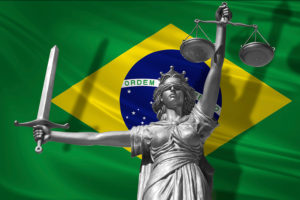FIFA finds no suspicious betting on Women’s World Cup

FIFA’s Integrity Task Force says no red flags were raised by its network during the competition.
Switzerland.- FIFA has announced that there were no suspicious betting reports related to the 2023 Women’s World Cup in Australia and New Zealand. Its Integrity Task Force received no alerts over suspicious behaviour or the potential manipulation of matches from its network of representatives.
The task force was established after the previous Women’s World Cup in 2019 to monitor for suspicious betting and match-fixing. Its network includes assigned representatives from international agencies such as INTERPOL, the FBI, Sport Integrity Australia and the New Zealand Police. It centrally analysed data from betting monitoring reports, including from surveillance of venues during the 64 matches in the competition.
FIFA said: “The collaborative effort between FIFA and key international stakeholders in the field of sports integrity ensured an experienced, coordinated and timely response, with each participating stakeholder contributing their specific expertise (investigative and/or technical) throughout the tournament.”
Rise in Women’s World Cup betting
Bookmakers reported a substantial rise in worldwide betting on the Women’s World Cup, including among female bettors. In the UK, Entain, which owns the Ladbrokes and Coral brands, says it’s seen “exponential growth” in betting on the competition and a record number of women placing bets.
Over in the host nations, TAB New Zealand, an official sponsor and partner of Entain, has reported a 365 per cent rise in the number of bets placed on this year’s tournament, while the increase in Australia was nearly 200 per cent, likely as a result of the Matildas’ progress.
Meanwhile, the British Gambling Commission has reported on the results of a survey into betting behaviours both during and after the men’s 2022 FIFA World Cup. The regulator commissioned Yonder to gather data in December and again in March to find out if the event led to an increase in gambling.
The research group contacted people who reported either having bet on the World Cup or having played a related free-to-play game during the tournament. Its 811 respondents answered questions about their gambling behaviours and attitudes. The same people were contacted in March to discover if they had changed their gambling behaviour.











